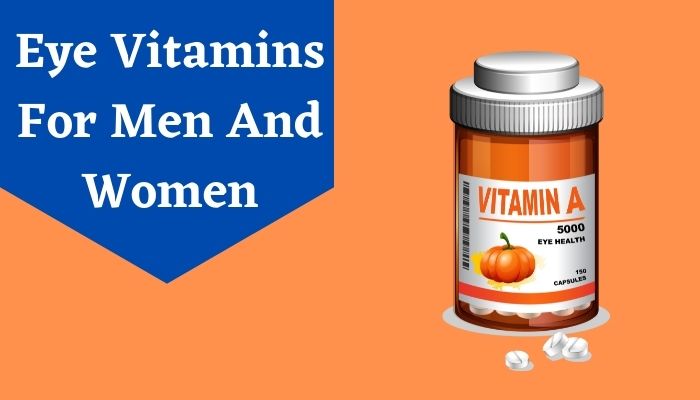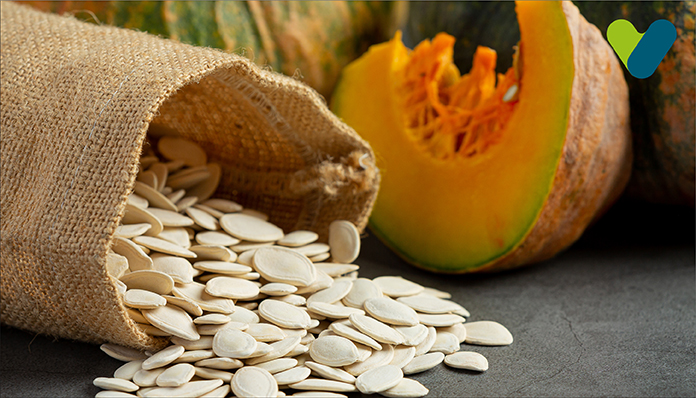Simran is a 45-year-old woman. Recently, she has been witnessing several symptoms like greater eye strain. At the same time, her mother who is almost 65, has had to go through a cataract operation too. Her doctor said that cataract formation could have been delayed in the case of her mother if she had consumed the right vitamins while advising her to integrate them into her daily diet as well. Simran now wonders about the right vitamins for eyes and general health.
Do you know a vitamin required for maintaining good eyesight? Chances are, most of us would probably struggle with this question! However, we need more awareness of the right vitamins that can boost eye health in the long run.
Best Vitamins for Eyes
1. Vitamin A
Vitamin A is indeed one of the top vitamins for eyesight. It helps in maintaining a clear and unblemished cornea which is the outer covering. It is one of the best eye vitamins for blurry vision, helping you see better in dark or low-light scenarios. Deficiencies may lead to xerophthalmia, an ailment that causes night blindness and dry eyes/ducts. Vitamin A may also help lower cataract and AMD (age-linked macular degeneration) risks at the same time. Consuming pumpkins, bell peppers, and leafy green vegetables will help you get your preferred dose of Vitamin A.Read More: List of Vitamin A for Eyesight and Eye Health
2. Vitamin E
Oxidative stress is often held responsible for several kinds of eye disorders. Vitamin E helps in this regard by safeguarding the cells from damages via free radicals. It may also help in combating cataracts. You can consume fresh green vegetables, avocado, and salmon to get your dose of Vitamin E along with seeds and nuts.3. Vitamin C
Owing to its antioxidant attributes, Vitamin C helps in safeguarding your eyes against any free radicals. Vitamin C is also needed for collagen production and this protein is necessary for good eye health. You will find Vitamin C in bell peppers, citrus, and other tropical fruits, kale, and broccoli.4. Vitamins B9, B6, and B12
These vitamins contribute towards a reduction in the protein homocysteine which is linked to inflammation and higher risks of AMD (age-linked macular degeneration).5. Riboflavin
Riboflavin or Vitamin B2 helps with lower oxidative stress and better eye health. You will find it in yogurt, milk, oats, and other fortified cereals.6. Niacin
Niacin or Vitamin B3 helps in the conversion of food into valuable energy while also functioning as a helpful antioxidant. It may also help combat glaucoma as per studies. You will find it in various supplements (consume them only on your doctor’s advice) and other items like fish, poultry, legumes, mushrooms and peanuts.7. Zeaxanthin and Lutein
Both carotenoids are contained in the retina and macula of the eyes, safeguarding them from blue light and other damages. You can take supplements on the recommendations of your doctor. You may also consume green vegetables and fruits along with cooked kale, spinach and some other items.8. Omega-3 Fatty Acids
Omega-3 fatty acids are essentially polyunsaturated fats. The cell membranes in the retina have a considerably higher DHA concentration. DHA, as we all know, is a specific kind of Omega-3 which comes with its own share of benefits. Along with enabling the formation of eye cells, Omega-3 fats also come with anti-inflammatory attributes that help in combating a condition called diabetic retinopathy.Diets that are rich in oily fish may help in safeguarding against such conditions. Omega-3 fatty acids may also benefit those who are suffering from dry eye diseases by helping in the production of tears. An absolute lack of tears may lead to discomfort, blurred vision, and dryness occasionally.
You can consider consuming more Omega-3 fatty acids as a part of your regular dietary regime. Some of the best sources of the same include flaxseed, oily fish, nuts, soy, and Chia seeds. Omega-3 fatty acids are also present in olive oil and canola oil among similar oils used for cooking.
9. Thiamine
Vitamin B1 or Thiamine has a significant role in ensuring suitable functioning of cells and also in the conversion of food to invaluable energy. Studies have also highlighted its possible role in combating cataracts in the future. It may also help in combating diabetic retinopathy or DR at an early stage as per several other studies and reports.These have seen how consumption of Thiamine in the prescribed amounts each day (based on your doctor’s advice) may lower the albumen content in urine. This otherwise works as an indicator of the condition (DR) in the case of Type-2 diabetes. Some of the biggest natural sources of Thiamine include fish, meat, and whole grains. It is also present in some food items like pasta, bread, and even some breakfast cereals.



